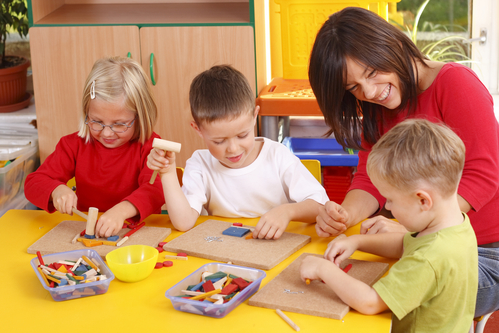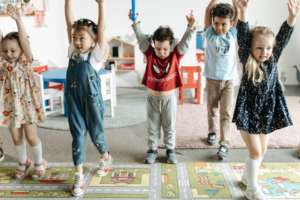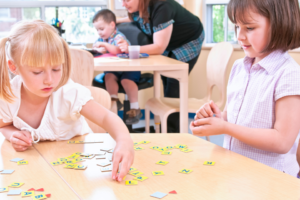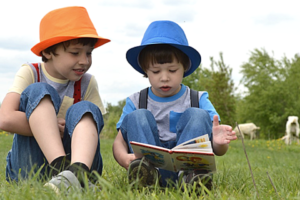
We’ve Only Just Begun: 3 Tips for Young Learners

I work with a five-year-old and, while it may appear to the outside observer that we are merely doing brainless, time-filling activities, the truth is that every activity can provide a teachable moment. For instance, we were recently working together on a hidden picture puzzle. While technically, we weren’t doing much more than looking for hidden objects in a painting and circling them, we were able to use moments here and there for academic and social learning. When, for example, he wanted a red marker and took one from my hand without asking, I was blessed with an opportunity to talk about manners and saying “please.” Later, when he wanted to write his name on top of our puzzle, we worked on penmanship and talked about capitalization. The point is that you don’t have to be behind a desk to learn and, more importantly, you don’t have to make kids feel like they’re in school building in order to teach them important and long-lasting stuff. Below, we’ll explore some tips on learning for young folks.
Mistakes are Good
If a young person starts thinking he needs to be perfect, he is setting himself up for disappointment. Understanding the value of mistakes is hugely important in social, emotional, and academic learning. Not only are mistakes good, they are also part of the human experience, and science backs that up. The “10,000 hour rule” states that ten thousand is the number of hours it takes to become an expert in almost any field. Ten thousand. Remember that number the next time you see a young kid hanging her head in frustration because she messed up on a math problem or made a mistake in her soccer game. Encouraging students, particularly young ones, by extolling the virtues of mistakes and explaining and modeling the fact that they are not bad, can truly change a young person’s life and make him that much more able to excel despite the inevitable stumbling. Thinking about mistakes rationally rather than emotionally (ie: we rarely view a mediocre test grade rationally; rather we are sad or angry or ashamed) can help us to learn from them without getting to high or low emotionally.
Know When to Say When
Young people sometimes struggle with being able to move from one task to another. Back to my five-year-old: we were building a Lego airplane and, about halfway through, I suggested we take a break and try another activity. This innocent suggestion resulted in him on the floor under the table refusing to look at me or talk to me. This incident reminded me of how important it is to be flexible learners. While it’s not uncommon for a five-year-old to want to keep playing with a particular toy, a refusal to follow instructions or to stop a task when told to can lead to problems in the classroom. This is not to say that we should teach little tykes to be multitaskers at age five, but rather that it’s ok to take a break or to end a task. Flexibility in learning and in life is a skill that can be instilled from a young age.
It’s Ok to Have Fun
The idea that life is full of teachable moments is a good thing to keep in mind when working with young people. Contrary to signals our society often sends us, it is ok to not be serious about everything. We all remember the teachers that made us laugh or thought up fun and different ways of teaching. There were lessons in the hidden picture puzzle mentioned above just as there were in that Lego airplane. While maybe not overt, these lessons and moments are available to us if we know how to look for them, especially in those moments when students don’t feel like they’re learning, rather when they feel they are free, at ease, and having fun. Indeed, young people should know that it’s definitely ok to have fun; what they don’t necessarily need to know is that they can also learn while they’re doing it.
Written by Phil Lane
iAchieve Learning offers tutoring for Young Learners. For more information about how we can help you, contact us today!



